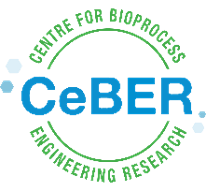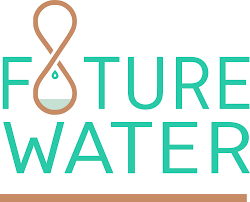
|

|

|
The environmental and bioprocess engineering components of this project will be driven by Sue Harrison, director of both the Centre for Bioprocess Engineering Research (CEBER) and the newly formed Future Water Research Institute at the University of Cape Town. Sue was a founder member and remains an active contributor to the Minerals to Metals initiative led by the Minerals Beneficiation chair. Prof Harrison is the SARChI chair in Bioprocess Engineering.
Prof Harrison and her team will be focusing primarily on the following research question: "Can fibre-rich plants serve the joint role of remediation of degraded mine land and fuelling of a multi-product value chain?"
Our expertise includes:
- Research into mine waste handling for zero harm (esp sulfidic waste):
- Appropriate disposal
- Re-purposing to value addition
- Circular economy and industrial ecology approaches
- Knowledge on water quality, remediation and analysis
- The water catchment and integrated water use
- Mitigating pollution and its impact on communities
The eco-system based model describes material flow in the industrial ecosystem. Can we move towards a (more) closed anthropological model - mimicking natural ecologies? … through creating wealth / value from biomass / waste / byproducts …
We hope to integrate experimental science with engineering process approach. We will take on an ecological perspective with interests in dynamic ecologies; zero waste; and integrated process development with multiple products of varying value, enabling concomitant value creation and remediation. Water is a key driver and micro-organisms are ubiquitous and key in most processes / eco-systems etc. We plan therefore, to evaluate the big picture (environmental impact, economic feasibility) and minimise boundaries.
We anticipate utilising the following tools:
- Desktop studies through mining the literature
- Flowsheet development
- Material and energy balances
- Modelling of biosystem
- Life cycle analysis and techno-economic studies
While unlikely to be used explicitly in this study, expertise derived from the following will also form part of the basis to our approach:
- Experimental studies: system performance
- Experimental studies: system ecology
- Experimental studies: hydrodynamics, water quality
Project 4 Work Package:
- Conduct a paper study to assess the best match of plant and degraded land in terms of:
- the features of the land and soil,
- the resilience of the plant and its productivity
- nutrient and water requirements
- Assess potential for metal removal by the plants, impact of plant type on removal and ease of metal recovery → position paper on plant selection, remediation potential and the biomass productivity.
- Potential for macrophytes to polish the mine water. Water quality attainable, volume treatable, size of macrophyte reactor / wetland, potential to reclaim metals are key.
- The potential of a biorefinery approach, centred on a multi-product value chain with a strong focus on resource productivity. Nature of biomass production (leaves, twigs, major wood sections, shavings etc). Major wood components used directly for wood products. Waste fractions, twigs and leaves directed to alternative products.
- Working with the materials processing team:
- the biomass resource and water flows will be mapped
- life cycle assessment to interrogate integrated flowsheets for resource efficiency
- Working with the overall team:
- cost-benefit analysis
- potential for job creation of the different biorefinery options
- Collaboration with experts
- Soil science
- Fibrous plants